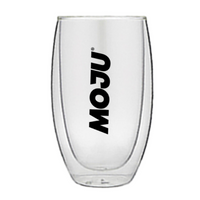When you go travelling whether that is via airports, bus stations, or even cruise ships. You are inevitably going to come into contact with many other people and the chances of getting ill increase 10-fold not to mention the stress you put your body through when travelling.
You subject your body to changes in air pressure, climate, temperature, circadian rhythm disruptions, dehydration, poor nutritional choices, loss of sleep, and all the stress that comes with travel. It's a lot and recent research demonstrates that flying can have a negative impact on your immune system, ultimately leading to more regular episodes of illnesses.
At MOJU we wanted to put our ginger shots to the test. We have seen great benefits in immune function with some of the teams we have performed research with in the past. The write ups can be found here:
To summarise Munster Rugby saw improvements in immune markers in blood samples taken from the players indicating their bodies were in a better position to fight off any illnesses. Bristol Bears also saw a reduced number of days players were absent from training because of illness, and a reduction in the severity of the colds and coughs that the players contracted.
We wanted to see if we could replicate this with cabin crew as they are subjected to several pressures which could compromise their immune system.
34 British Airways cabin crew members willingly put themselves forward to take part in the research. They were randomly allocated to either a ginger taking or non-ginger taking group. The research took place over 36 days. The ginger taking group introduced a ginger shot consumed every day for 36 days with breakfast and they completed the Wisconsin Respiratory Symptom Survey. The non-ginger taking group carried on with their day to day and also completed the survey on a daily.
Results
It's been intriguing reviewing the data!
The Wisconsin Respiratory Symptom Survey looks at several different things when it comes to colds and coughs. Including, how sick the individual is feeling, ratings of the severity of symptoms (runny nose, blocked nose, sneezing, sort throat, scratchy throat, cough and tiredness). How the illness is progressing and if it impacted the ability to think clearly or accomplish daily tasks.

Between the two groups the ginger reduced the severity of the illness and the regularity of illnesses contracted by the cabin crew.

The ginger taking group had an average of 1.6 episodes over the course of the 36 days, whereas the non-ginger taking group had an average of 2.5 episodes per person.
Interestingly looking at the length of illness differed between the two groups. The ginger takers were sick for a longer period in comparison to the non-ginger takers. However, this data is slight skewed by two individuals. That unfortunately seemed to be ill for the duration of the experiment. However, we followed up with those participants to gain further insight and they provided the following feedback:
Participant 1
‘Typically, every October when the weather changes and it gets cold, I get hit with tonsillitis. As per usual, the same happened this year followed by a slight cold after I got over it, so I had quite a rough month!
I really enjoyed the trial though and noticed an improvement and not feeling as unwell as usual!’
Participant 2
Yes, I am always coughing and spluttering this time of the year and as cabin crew when you’re in much colder climates without proper clothing, I find this is the norm.
I would say that the ginger shots did help as I only had milder symptoms and I put that down to taking the shots, so it prevented my symptoms turning into a full-blown cold, flu or worse.’
This supported the data demonstrating the ginger consumption reduce the severity of illness experienced by the cabin crew members.
In addition to this, the cabin crew study also replicated the results we saw from the Bristol Bears study where the ginger consuming group saw a reduction in the severity of colds and coughs.
Wrapping it up
Daily consumption of ginger may reduce the frequency of illness over the course of the year and if you were to fall ill, it will also reduce the severity of that illness. Reducing the impact that the illness has on your day to day functions which is only a good thing!



